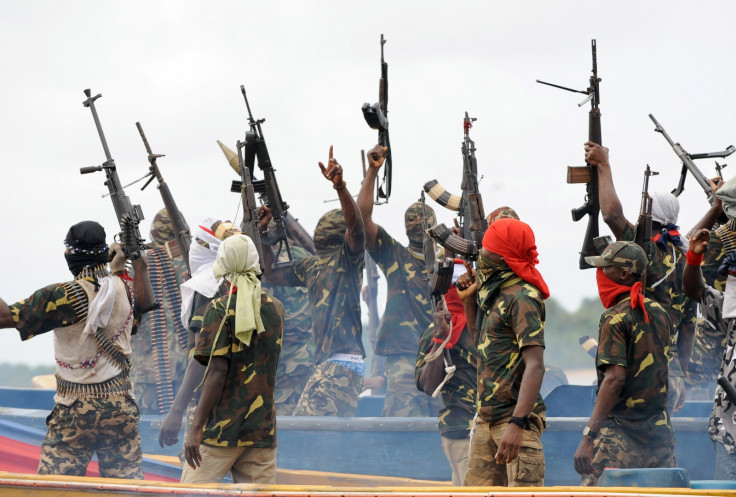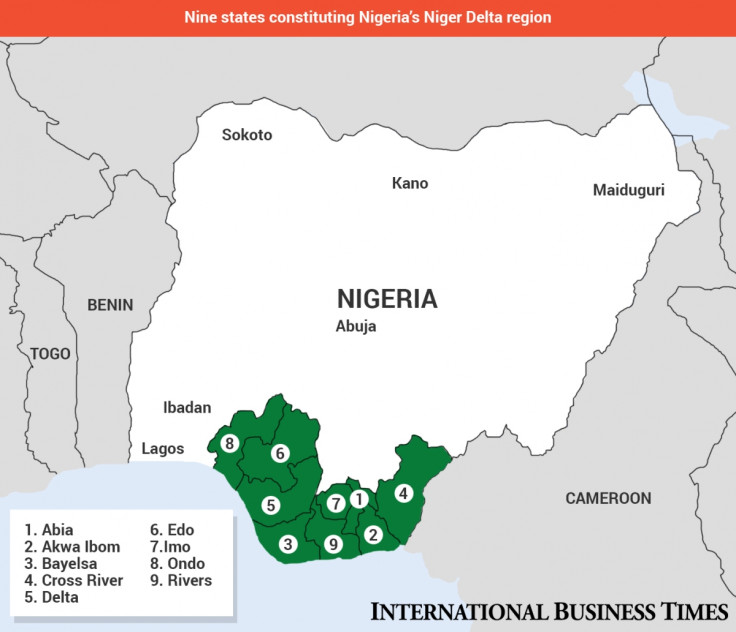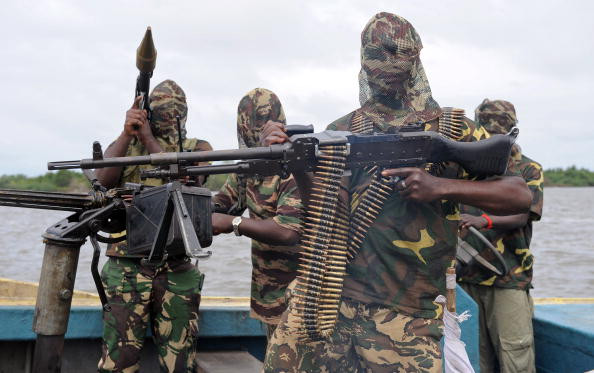Nigeria's oil war: Who are the Niger Delta militants?

The Nigerian military is believed to have arrested 13 alleged members of militant groups in the densely-populated Niger Delta days after the army expressed concern over fears that militants are regrouping in the region years after they were granted amnesty for laying down arms.
The troops raided the Kula Community in the Rivers State over allegations of widespread militant activities including kidnappings and killings. Niger Delta is an oil-rich region in southern Nigeria inhabited by more than 31 million people. It is composed of nine modern-day Nigerian states and has been marred by widespread violence, kidnappings for ransom and clashes between militant groups and the army since the early 2000s. In 2008, a Joint Task Force (JTF) was deployed to curb militant activity in the area.

A Presidential Amnesty Programme (PAP) for the militants in the Niger Delta has been running since 2009. According to the programme, beneficiaries receive monthly stipends, some of which have not been paid on time. In August, PAP coordinator Paul Boroh confirmed that payments had resumed. Earlier in September, he pleaded to ex-militants to be patient over due payments and reassured that there are only isolated episodes of militants resuming activities.
Origins of militant groups
Militant groups originated in the early 2000s following the deterioration of the living conditions of people living in oil-rich areas due to the increase of oil-related activities by foreign oil corporations. Tensions between foreign oil corporations in the region and local communities arose as some ethnic groups felt they were being exploited and could not benefit by the presence of oil in the area.
The repeated oil spills that considerably damaged the environment and affected people's health contributed to further deepen the communities' frustration. In 2015, Amnesty International said that Royal Dutch Shell and the Italian multinational oil giant ENI admitted to more than 550 oil spills in the Niger Delta in 2014 alone. In January, Shell agreed to pay $84m (£55m) in compensation to the Bodo community over two oil spills which affected more than 15,000 fishermen in the area. Damages caused by oil spills also forced people to abandon agricultural practices and, as a result, they became poorer.
Who are the main groups?

Niger Delta People's Volunteer Force (NDPVF)
Tensions escalated and culminated in attacks, and also saw the birth of militant groups such as the Niger Delta People's Volunteer Force (NDPVF), which is one of the largest armed groups in the area. The group, created in 2004, advocates for a bigger share of oil wealth and it has occasionally supported separatist movements in the area. It is mainly composed by the Ijaw, one of Niger Delta's largest ethnic groups.
NDPVF's founder, Alhaji Mujahid Asari-Dokubo - also known as Asari - was jailed in 2005 on treason charges after his group repeatedly threatened to carry out attacks on oil pipelines, causing a drop of oil production and the subsequent rise of oil prices. Asari was apprehended after he had refused to endorse the leadership of the then president Olusegun Obasanjo.
He was released on bail two years later and he is regarded as a hero by the Ijaws due to his activism for an independent state from the rest of Nigeria. It is believed that Asari threatened militia would resume attacks following the defeat of former President Goodluck Jonathan in March 2015's election.
NDPVF has been accused of illegally taking oil from pipelines and making profits by selling it to other countries. NDPVF defended this practice, known as "oil bunkering", arguing that local people do not receive adequate profits originating from oil production and sale. The group's strong activism for the independence of the Ijaw people has also led to violence with other ethnic groups. Particularly violent were the clashes with the Itsekiri ethnic group in Warri, Delta state, and Port Harcourt, capital of Rivers State, that have caused casualties on both sides.

Niger Delta Vigilante (NDV)
NDPVF also clashed with the Niger Delta Vigilante (NDV) group, also mainly composed by Ijaws. The two groups are now rivals, and in 2003 and 2004 engaged in a violent conflict that ended after the Nigerian government intervened, supporting the NDV, and prompting the oil crisis started that year to deepen.
NDV was created in 2003 in Port Harcourt and advocates for a greater control of the resources present in the area. It was led by Ateke Tom until 2009, when he surrendered to the then president Musa Yaradua in exchange for amnesty. Following the election of current President Muhammadu Buhari, Tom has reassured that former militants in Niger Delta will not commit violent actions and are willing to cooperate with the new leader. It is not clear whether the NDV is still active.
Rumours that militants might attack oil pipelines if the government revoked surveillance were also dismissed by Ebikabowei Victor-Ben, commonly known as "General Boyloaf", former leader of the Movement for the Emancipation of the Niger Delta (Mend).

Movement for the Emancipation of the Niger Delta (Mend)
Mend was founded in the 2004 and is currently one of Delta's largest militant groups. It is sometimes considered as an umbrella group that includes some 100 factions, some of which carry out attacks on oil pipelines in the area.
Besides advocating for a greater share of oil revenues and compensation following environmental damages caused by oil spills, Mend also supports the ongoing Movement for the Survival of the Ogoni people (Mosop), estimated to be around 500,000 in the area. In 2009, a military operation led by the JTF started against Mend members following a spate of kidnappings. Mend is accused of having kidnapped dozens of people as well hijacking dozens of ships.
In November 2014, one Indian and two Pakistani construction workers were kidnapped in Bayelsa state. However it was not clear whether the abduction occurred at the hands of militant groups or pirates, whose presence is also widespread in the region.
The Niger Delta Liberation Front (NDLF)
Funded in 2005, the group was led by John Togo, who was one of the most well-known warlords in Niger Delta. It is believed Togo was killed in 2011 during a bombing by the Nigerian Air Force. He had received amnesty by the government in 2009 but returned to fighting shortly after accusing the leadership of not living up to its promise.
Following Togo's death, many members of the group left and joined Mend. The group also suffered from internal violence when two people claimed they were at the head of the movement in 2013.
© Copyright IBTimes 2025. All rights reserved.






















